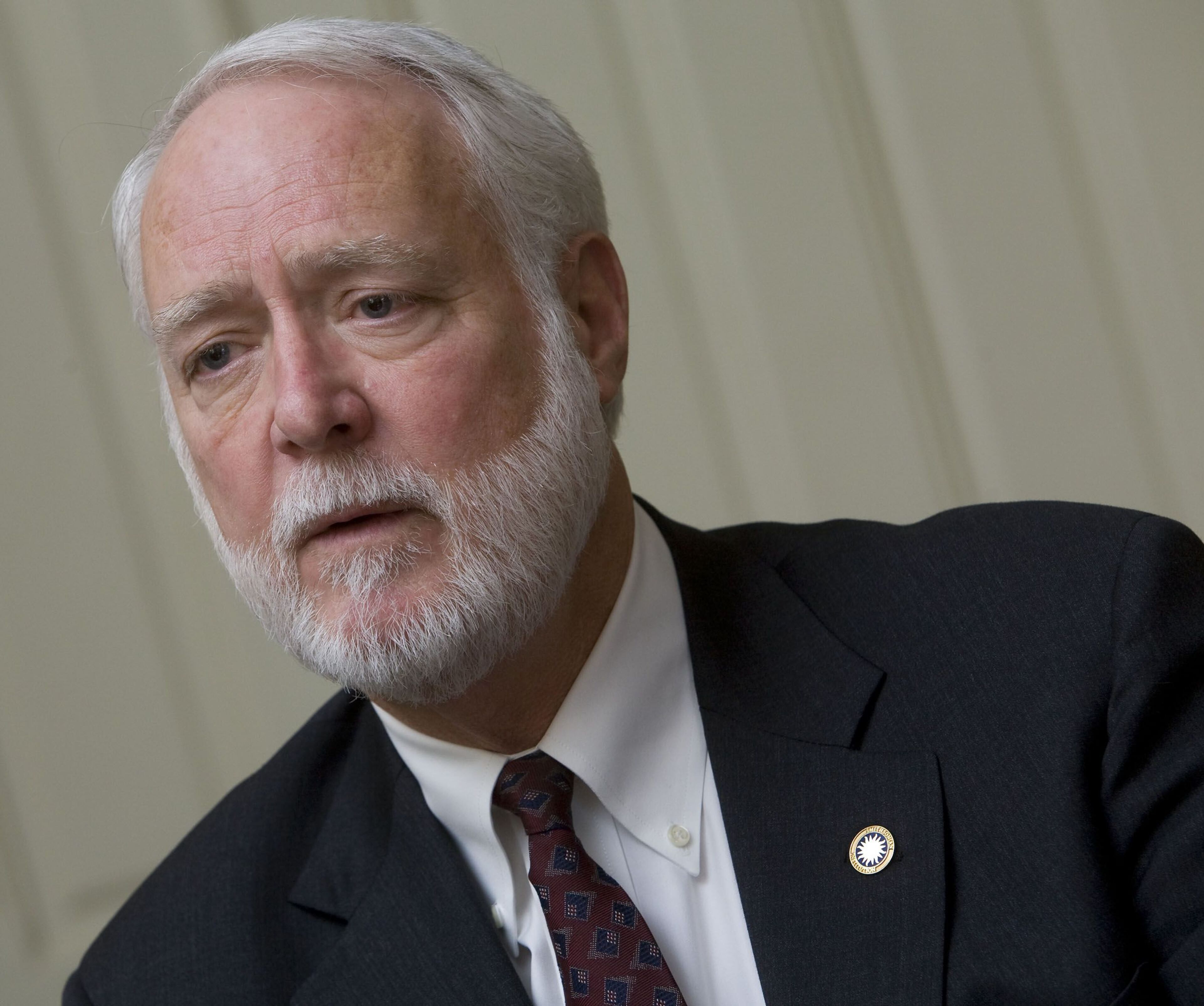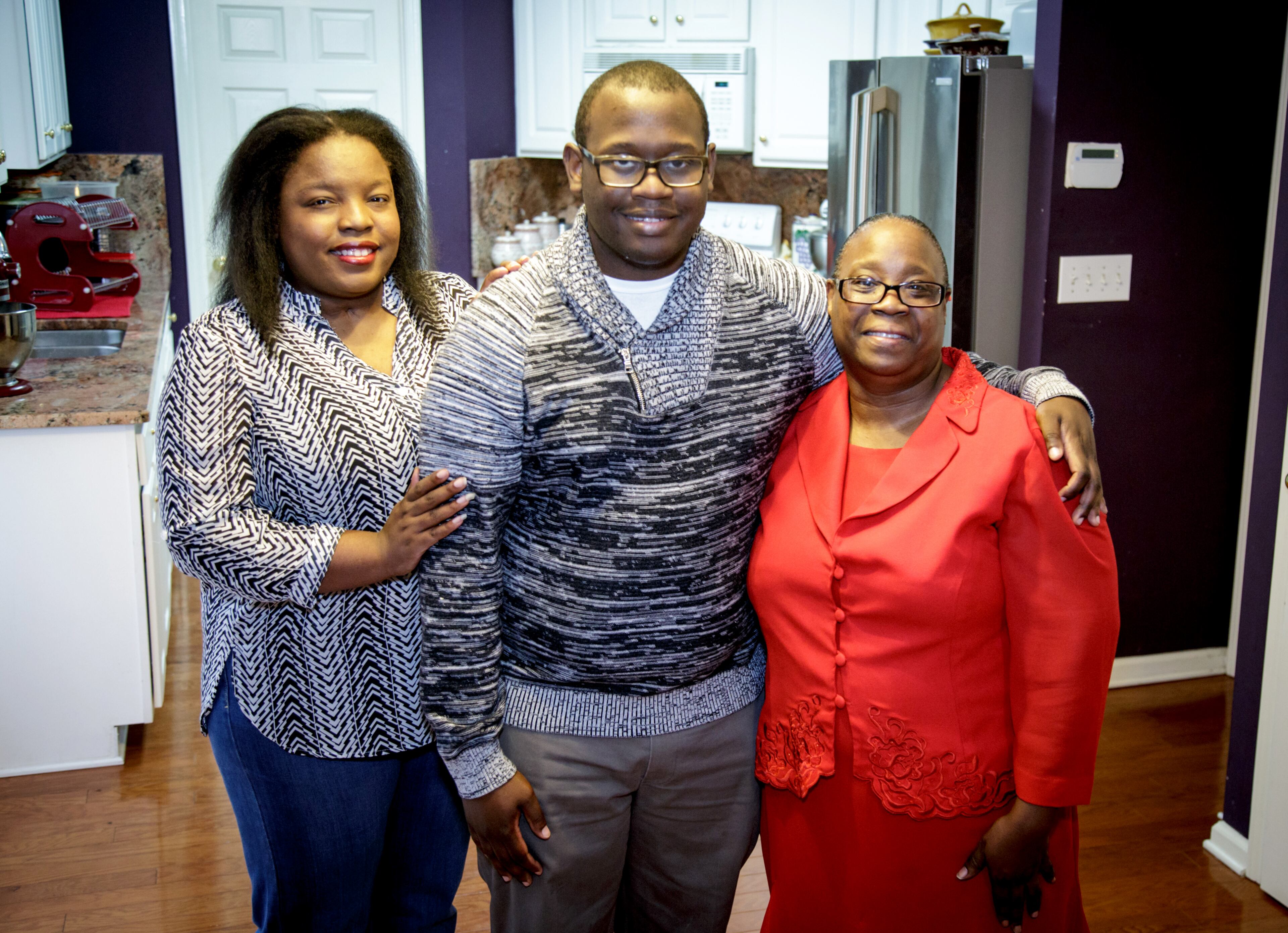Tech Promise: Georgia Tech aid program guarantees degree without debt

It's been a few years since Duane Carver left high school, but he remembers the schedule well.
The Brunswick student would go to school, then head to “part-time” jobs — ranging from work in restaurants and grocery stores to cleaning semi-trucks — that sometimes saw him returning home at 3 a.m. He’d fit homework somewhere into the schedule, sleep a few hours, then do it all again the next day.
“When you’re going through it, you don’t think about it,” he said. “You just do it.”
After fleeing an abusive father, times were tough for Carver, his sister and mother, he said. For about a year, they were homeless, bouncing from the couches of family members to eventually living in their car and even an abandoned building.
Throughout all of that, Carver remained a stellar student and determined to attend college.
He had no difficulty with school; paying for it was the problem.
When graduation time came, he was set to attend one of Georgia’s private colleges. But the school was only offering financial aid covering 75 percent of the costs. With his family’s dire financial straits, paying the balance wasn’t possible.
At the same time, Georgia Tech was beginning a new program to help students like Carver: high achievers with good grades and bright futures but who wouldn’t be able to afford the premier school known for churning out top scientists, mathematicians and engineers. A school counselor had him apply for the Tech Promise program and the rest is truly history.
A recognized need
Since its inception in 2007, there have been more than 800 students in the G. Wayne Clough Georgia Tech Promise program, including 153 this school year. Former Tech president Clough began the privately funded program that bears his name after attending a national education symposium and hearing how high college costs can keep some students from enrolling in science, technology and engineering fields.
“I realized we were possibly disenfranchising people because they couldn’t afford it,” Clough said.

Clough and Georgia Tech began configuring the program and fundraising in 2006 before launching Tech Promise the following year. Carver was the first Tech Promise scholar to graduate from the university.
Students selected are incoming freshman who must meet Tech’s stringent academic requirements and come from families where parents earn less than $33,000. (The average annual parental income for recipients is actually closer to $22,500). Many are minority students and the first in their families to attend college.
Clough has always felt a kinship with these students.
He grew up in a working-class family, and neither of his parents attended college because they couldn’t afford it. Clough worked his way through college, and he has established a separate scholarship in his parents’ name for kids from his hometown.
The basic guarantee with Tech Promise is that students “will not have to incur debt; even if (students) lost HOPE, we would still pay them,” he said. “It was a huge guarantee to a student and their parents.”
The Tech Promise financial awards are combined with other financial aid such as scholarships like HOPE, to pay for tuition and fees, but also can be used for personal expenses and meal plans, which HOPE doesn’t cover.
Carver, a HOPE recipient, used his Tech Promise aid to cover his summer sessions and internships necessary for his degree and career.
Megan Haley, who like many of Georgia’s college students lost HOPE after her freshman year, used Tech Promise funding to pay for her education after that, including studying abroad.
The Rossville resident began dreaming of attending the university as a sophomore in high school, but with the high cost of tuition and her parents’ tight budget, she knew it was a place she couldn’t afford.
“And when I calculated the amount of student loans that I would need to take out to pay to go, it just didn’t make sense,” she said.

But as a Tech Promise recipient, Haley, 22, is now a Georgia Tech senior and will graduate with a public policy degree in May.
Tech Promise “has opened so many doors,” she said. “There’s no way I would still be here without it.”
No statewide need-based aid
Thousands of students are dropped from the rolls of of schools in the state's University System each year because they can't afford to pay. Many times the shortfalls are less than $1,000. Other students never make it to college for the same reason.
Georgia is a national leader in merit-based funding, with its popular HOPE scholarship program. But the state does not have a similar comprehensive, statewide college scholarship program based on financial need.
To bridge the gap, other schools have also begun their own programs. The University of Georgia has launched a $1.2 billion fundraising campaign for both its merit and need-based aid programs. Georgia State University offers Panther Retention Grants, micro-grants sometimes as little as $300 that help students facing financial shortfalls. The state’s Board of Regents also raises money each year to help with the unmet need. Even private schools like Spelman College offer micro-grants to keep students enrolled.
The work individual institutions are doing is good, but not enough, said Claire Suggs, senior policy analyst with the liberal Georgia Budget and Policy Institute who has studied the issue, and is a proponent of some sort of statewide aid plan. "Anytime there is an effort to meet the needs of low- and moderate-income students is good, but they don't replace a real comprehensive program."
Until that happens, Georgia Tech and Clough plan to keep helping students like Carver, who went on to graduate from the university in just three years in 2010 with a computer engineering degree. He went on to law school at the University of California, Berkeley.

Now 27, Carver works as a patent attorney for one of the metro area’s largest firms.
“The Tech Promise program helped my whole family,” Carver said. And to pay it forward, he’s considering endowing a scholarship at Tech for students like him.
After the Tech Promise program helped him get through college, he was able to help his mother and sister complete their education. All three now have college degrees.


